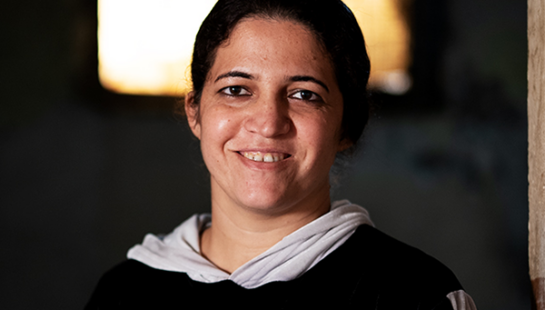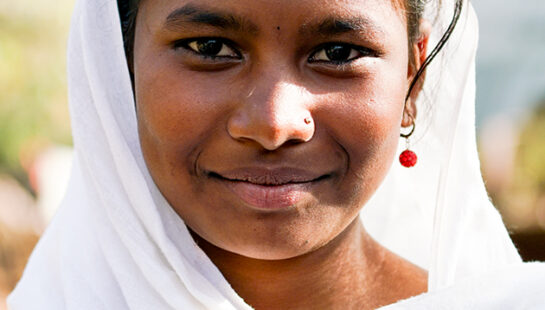Two million people in Ethiopia’s Tigray region were forced to flee their homes and millions now depend on humanitarian aid since fighting broke out in November 2020 over political tensions between government forces and the Tigray People’s Liberation Front (TPLF).
The unrest and displacement in the region will likely cause more than 100,000 children to face severe acute malnutrition (SAM) over the next year, according to a report released by a UN agency in July. It would be a ten-fold increase on previous annual figures.
The report also revealed that almost 50 per cent of pregnant and breastfeeding women are acutely malnourished, suggesting a likely increase in maternal deaths in childbirth and low-birth weight babies that will be more susceptible to sickness and death.
Ethiopia is in crisis.
How Should Christians Respond To Conflict In Tigray?
When an expert in the law challenged Jesus about inheriting eternal life, Jesus responded with the parable of the Good Samaritan (Luke 10). Jesus left no doubt in the expert’s mind that we are to show mercy to those who are suffering.
But we can look deeper into this perspective, particularly when we put ourselves in the shoes of what the Bible refers to as ‘foreigners and aliens’. Exodus 22:21 states, ‘Do not mistreat an alien or oppress him, for you were aliens in Egypt.’ It’s a poignant reminder that at one stage, all of God’s people were forced to fleeing slavery and persecution.
In Ephesians 2:19–20, we see how Jesus brought unity to all people, ‘Consequently, you are no longer foreigners and aliens, but fellow citizens with God’s people and members of God’s household, built on the foundation of the apostles and prophets, with Christ Jesus himself as the chief cornerstone.’
Happening On Our News Every Day
Fleeing your home due to conflict, persecution, or to escape severe hardship and seek a better world is foreign to many of us in Australia. But we see it happening on our news every day—and even some of our neighbours are here because of their refugee status. We see it happening to ‘fellow citizens with God’s people’. And we see it happening to those crying out for mercy.
Baptist World Aid spoke out recently about how the plight of four-year-old Tharnicaa Murugappan—the child of a family that had fled conflict and persecution, and were seeking a better world—was challenging the soul of our nation.
As Christians, it is hard to stand by and watch.
Because in Christ Jesus, the ‘chief cornerstone’, we have a saviour who knows persecution – and not just at the hands of the Pharisees and Pontius Pilate, but as a child refugee who fled to Egypt – for it was Jesus as a child that Herod sought to kill.
Global Issues
In August 2017, approximately 750,000 Rohingya people crossed into Bangladesh, fleeing an ethnic cleansing campaign in Myanmar. As many as 500,000 Rohingya refugees were already there. Four years later, they are all still there, in makeshift refugee camps outside Cox’s Bazar. Tragically, thousands have now been displaced yet again as monsoon rains have flooded the camps.
The same storms are causing widespread devastation across the region—Myanmar, Philippines, and even Afghanistan. Meanwhile, Indonesia has become the epicentre of the COVID crisis with numbers surpassing India’s horrendous peak, despite having one quarter of the population.
How You Can Help Tigray
Australian Baptists have a long history of helping those in need, having assisted communities affected by disasters—both natural and man-made—since the Australian Baptist World Aid and Relief Committee (ABWARC) began in 1959.
Today Baptist World Aid focuses on five regions—Sub-Saharan Africa, Middle East, South Asia, Southeast Asia and the Pacific (Melanesia)—and several countries specifically: Malawi, Kenya, Uganda, Lebanon, Nepal, Cambodia and Bangladesh where political conflict or environmental disasters have left devastating effects. As we focus on disaster management, responding to small events within existing country programs, and larger disaster responses where there is a call for international assistance, we partner with like-minded local agencies to respond.
But disasters require urgency. ‘The first 72 hours following a disaster are the most critical because it’s always the most vulnerable who are impacted,’ said Daniel Skehan, the Director of Programs for Baptist World Aid.
‘Children and youth represent about 50 per cent of the victims of rapid onset disasters simply because children and youth don’t have their life skills to know how to manage and navigate a situation,’ he said. ‘In this way you can imagine that those living with a disability, or the elderly, are also highly vulnerable. Immediate response is vital.’
Equipping And Empowering Local Groups
For these reasons, the humanitarian sector—including Baptist World Aid—has increasingly focused on equipping and empowering local groups to be the first responders to a disaster.
The Baptist tradition of offering practical care to those in need continues today and is evident every time Baptist World Aid puts out a call for help. Just this year our supporters have responded to urgent COVID-related emergencies in PNG, Nepal, and India, and to natural disasters in Indonesia and East Timor.
But many want to know how they can help ahead of time. The simplest way is through the Disaster Action Fund—an ever-present fund that allows us to respond immediately when disaster strikes, to rebuild lives and communities following the initial emergency response, and help at-risk families prepare for future disasters.
As 100,000 children in Tigray face starvation, as 82.4 million people are currently on the move having fled their homes in desperation, and as millions face uncertainty because of natural disasters and COVID-19, we take heart in Christ Jesus as the ‘chief cornerstone’. From his example and invitation, we, too, seek to serve, not foreigners and aliens, but all God’s people. Please join us.



 Mike Bartlett
Mike Bartlett

 Baptist World Aid
Baptist World Aid